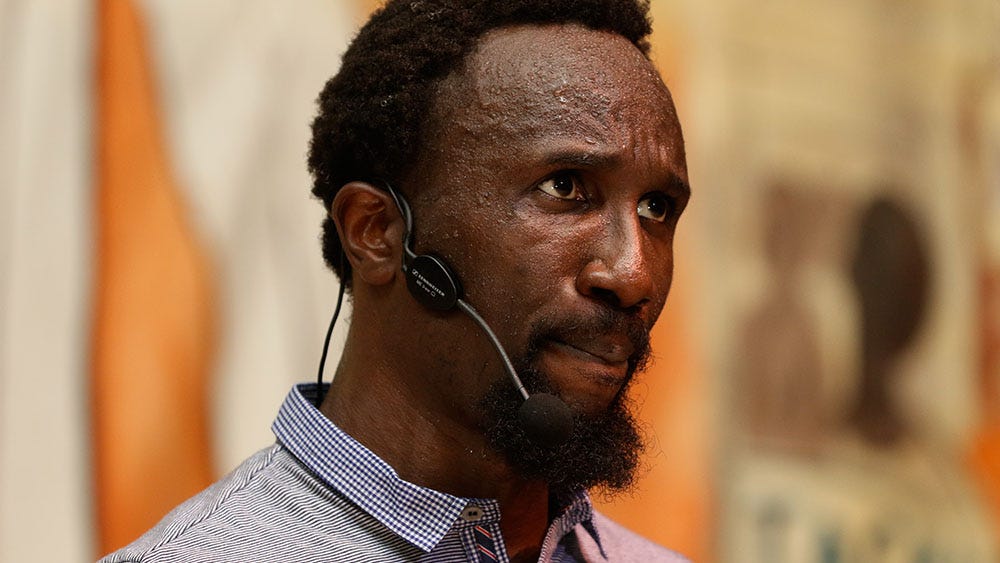The Art and Politics of Dike Chukwumerije
Dike Chukwumerije speaks to Sanusi Anslem: "Old problems abound".
It was 6pm on October 12, 2019. The tenth installment of Dike Chukwumerije's Night of the Spoken Word (NSW) was about to begin. I sat quietly, waiting among the mostly excited 600+ audience. People continued to trickle in, the stage lights had been dimmed, the hall almost pitch dark. We were about to watch Dike and hi…




